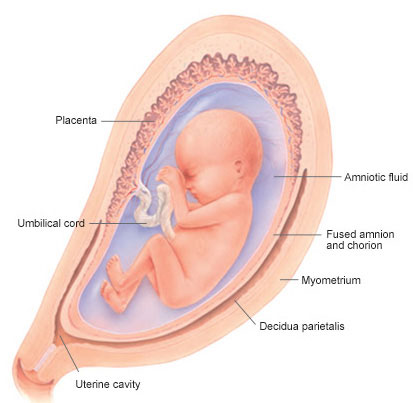Antenatal care is very important for an overall healthy and hassle free pregnancy. It consists of visit to a gynecologist. Through antenatal visits, one can spot the problem, if any beforehand and thus they can be corrected.Right antenatal care is extremely important for the healthy growth and development of the baby inside mother’s womb. It is also very crucial for having a healthy pregnancy and preventing complications during
delivery. Let us find out all about antenatal care.
What is antenatal care?
Antenatal care is the consultations you have with your obstetrician about yourself and the baby during the nine months of pregnancy. It is important that you make these visits regularly and from early on in your
pregnancy. Your doctor will arrange to ensure you are properly cared for during the months leading up to your baby's birth. At each visit, your doctor will help you, to spot possible problems before they start and to check that all is well with you and your baby. Antenatal care may also involve visits to your doctor's surgery or health centre or to a hospital antenatal clinic.
What generally takes place during a visit to an obstetrician?
You will be given a number of different tests. For example, you will be weighed to check how your baby is growing. Your blood will be tested to make sure you are not anaemic and to find out your blood group. You may also be examined internally to check that your womb and the baby are developing normally. This is perfectly safe and nothing to worry about. Going to the clinic will also give you a good chance to discuss your questions and worries with experts. Do not hesitate to ask them, however silly the question may seem. It is better to make a list of what you want to ask before you go.
When to start with the antenatal care?
You should schedule an antenatal or prenatal visit at the earliest once you have missed your period. This shall ensure you have professional care ready whenever you need.
What happens during the first antenatal visit?
Your obstetrician can help plan your delivery and you can also trust him during your
labour. Here are some details that your doctor might ask you:
- He may ask you about the last date of your period.
- He shall ask about your general health and if you had ever suffered from diseases like Rubella.
- He shall also ask about surgical histories if any.
- You shall be prepared with your family history like drinking or smoking or taking any other types of drugs.
- You shall also be asked about drugs for allergies that you had taken ever.
- Apart from this, your doctor will get your blood pressure checked during all your antenatal visits. Regular checks shall also ensure if your baby is getting all necessary nutrients.
- Antenatal care can help screening and prevention of complications such as intra uterine growth etc.
Physical Examination during Antenatal Visits
- You shall be examined well in the initial stage, which shall help compare your baby's growth and developments through pregnancy.
- After examining you shall get a rough estimate of the size of your pelvis. If you are around 5 feet, you shall have adequate space to give birth.
- Your weight shall be checked to keep an account of your weight gain through pregnancy. Usually, you should gain around 12 kg in pregnancy.
- If you tend to put on too much of weight, you shall be prescribed a low calorie diet by your obstetrician that is balanced with all nutrients.
- Your blood pressure shall be measured regularly and compared with the next readings. Irregular blood pressure can signify plenty of problems during this time.
- Your obstetrician shall also check your lungs and pulse rates.
Vital Investigations during Antenatal Visits
Your doctor shall suggest some vital investigations as part of the antenatal care. Take a look below.
- You shall be suggested haemoglobin test to ensure you are not anaemic. The range from 11 to 13 is generally considered normal.
- It is very essential to have knowledge about your blood group.
- There shall be investigations for antibodies and the Rhesus factors. Rhesus compatibility of the child and the mother is highly essential. You shall be suggested different test for antibodies if your rhesus is negative. You shall also be asked to take necessary precautions during labour.
- Blood tests shall be suggested to trace illnesses like Rubella, Herpes Simplex, Toxoplasmosis and Cytomegalo virus.
- It is important to go for tests for the Hepatitis antigen. Apart from this, you shall be suggested other blood tests for sexually transmitted disease.
- Urine examination on a routine basis shall help track possibilities of any urinary tract infection.
Prenatal Vitamins and Supplements
You obstetrician will prescribe prenatal vitamins and supplements to you. You need to take your vitamin and folic acid supplements daily as per his or her advice. Folic acid is meant to strengthen baby’s nervous system. Iron supplements too shall be prescribed to be taken by your obstetrician. Apart from this, you may also be asked to take multivitamin supplements, calcium along with a healthy diet. You need to take all the vitamins and supplements as per your doctor’s prescription.
While you may be anxious to spread the news of your pregnancy, you may wait for some time more and disclose to your very close friends only. Wish you all the very best!
What is the importance of antenatal care? What happens during the antenatal visits? When is the first antenatal visit scheduled? Discuss here. 






























